Review of Where the Mountain Meets the Moon, by Grace Lin
 Where the Mountain Meets the Moon
Where the Mountain Meets the Moon
by Grace Lin
Little, Brown and Company Books for Young Readers, New York, 2009. 282 pages.
Starred Review
2010 Newbery Honor Book
Sonderbooks Stand-out 2010: #5 Children’s Fantasy and Science Fiction
“Far away from here, following the Jade River, there was once a black mountain that cut into the sky like a jagged piece of rough metal. The villagers called it Fruitless Mountain because nothing grew on it and birds and animals did not rest there.”
Minli lives in this village with her Ma and Ba. They are poor, like the others in the village, but Minli is different.
“What kept Minli from becoming dull and brown like the rest of the village were the stories her father told her every night at dinner. She glowed with such wonder and excitement that even Ma would smile, though she would shake her head at the same time. Ba seemed to drop his gray and work weariness — his black eyes sparkled like raindrops in the sun when he began a story.”
However, spurred by stories, and a magical goldfish, Minli sets off on a quest to ask the Old Man of the Moon how to change their fortune.
This book is a wonderful quest tale, with stories woven throughout, all having the feel of Chinese classic tales. The book design is wonderful, with a small picture for each chapter, full color illustrations periodically, and a change in font whenever a separate story is told.
The stories Minli hears all tie together, helping her on her quest. She meets friends along the way, including a dragon who can’t fly, and must outwit some monkeys and get past an evil tiger. The story itself is simple and satisfying, but also intriguing.
The book reminded me very much of The Wizard of Oz, and I would love to read it to children who are just old enough to listen to a book with chapters. Like The Wizard of Oz, the quest leads our heroine back to those who love her, and everybody ends up happy, having learned their lessons well. Minli does face dangers, but none too horribly frightening.
As much as this book would be suitable for young children, I found it delightful reading myself. I liked the way Minli’s adventures tied in with the tales that were inserted. I’ve always loved fairy tales, and this book offered many original tales, all tied together in the quest of a delightful little girl with plenty of pluck.
Find this review on Sonderbooks at: www.sonderbooks.com/Childrens_Fiction/where_the_mountain_meets_the_moon.html
Disclosure: I am an Amazon Affiliate, and will earn a small percentage if you order a book on Amazon after clicking through from my site.
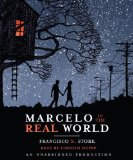 Marcelo in the Real World
Marcelo in the Real World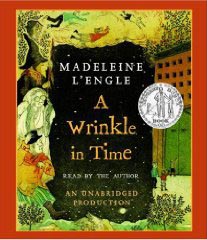 A Wrinkle in Time
A Wrinkle in Time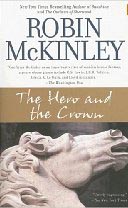 The Hero and the Crown
The Hero and the Crown Roll of Thunder, Hear My Cry
Roll of Thunder, Hear My Cry  Fire
Fire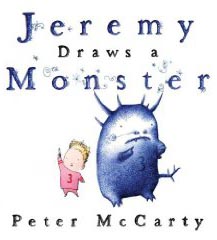 Jeremy Draws a Monster
Jeremy Draws a Monster French by Heart
French by Heart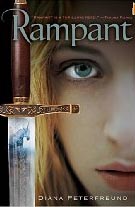 Rampant
Rampant Any Which Wall
Any Which Wall